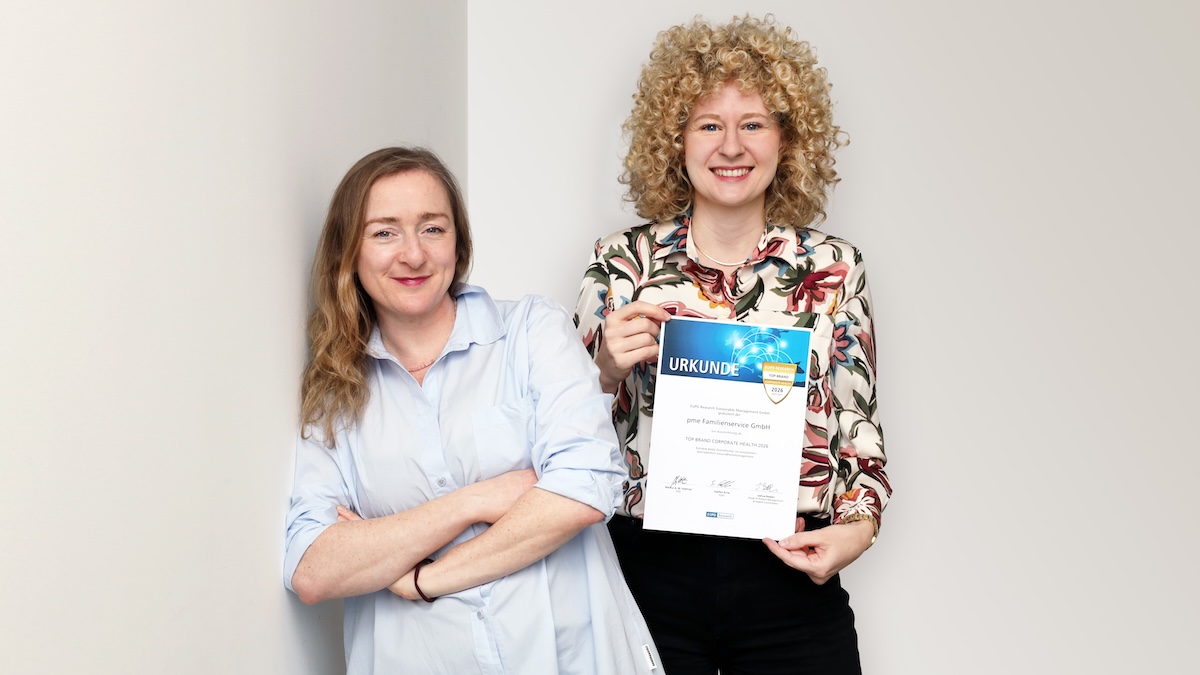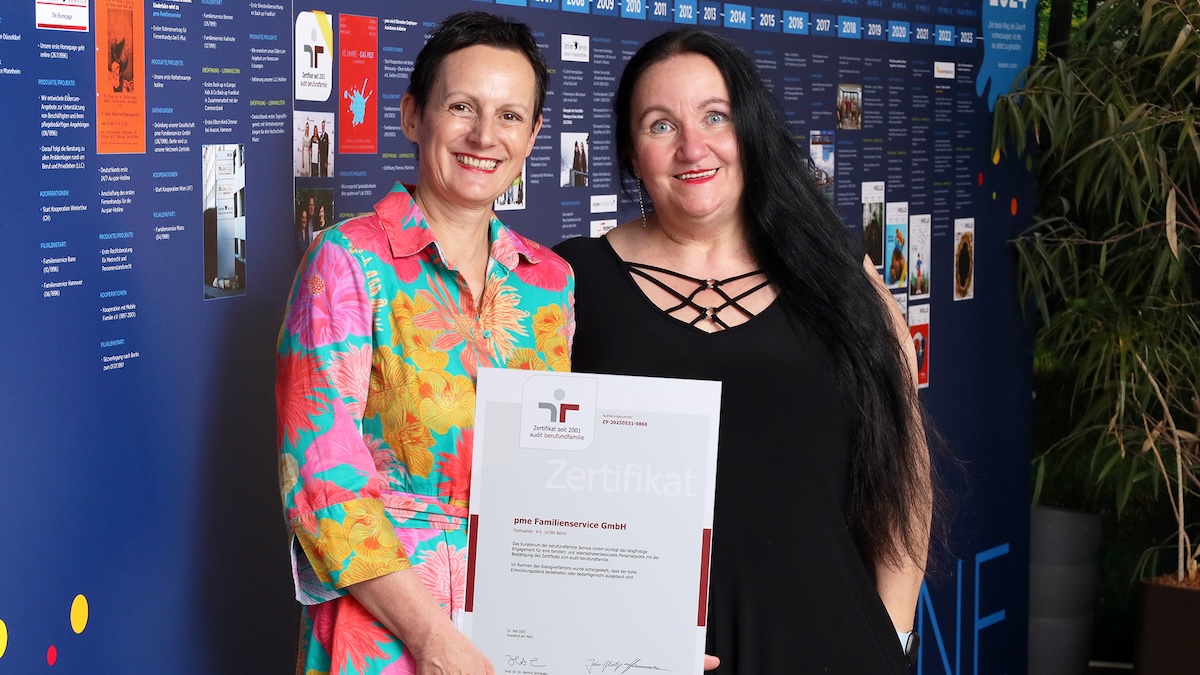
pme named "Top Brand Corporate Health" for the sixth time
For the sixth time in a row, the pme Familienservice has received the "Top Brand Corporate Health" award, making it one of the best service providers in the field of extended occupational health management in Germany in 2026.
pme's own Mindance app, an "all-in-one" platform for healthy, motivated, and productive employees, also received another award.
Michèle Penz, Head of Occupational Health Management at pme Familienservice:
"We are delighted to have once again been named a Top Brand Corporate Health. For us, this is more than just a seal of approval—it is a sign that our daily efforts are truly worthwhile. And that our concepts support exactly what many people want: a healthy, appreciative, and sustainable working environment."

Marlene Moehle-Assi from Mindance accepted the certificates for pme Familienservice Mindance at the ESG Summit. (Photo: EUPD Group)
About the pme Familienservice and the Mindance app
For over 30 years, pme Familienservice one of the leading providers of EAP services, supporting over 1,400 employers in balancing work and private life. We support employees in personal and professional crises, advise on prevention services, provide relief in organizing care, and offer coaching for managers and teams. In more than 90 facilities, we provide flexible, high-quality childcare.
Mindance is the health app from pme Familienservice offers digital prevention, a psychological hotline, and individual coaching. The app provides a wealth of interactive content on stress management, resilience, and exercise.
Together, pme Familienservice Mindance stand for a holistic health concept that empowers people, relieves companies, and promotes well-being in the long term—both personally and digitally.
About Top Brand Corporate Health
With its "Top Brand Corporate Health" seal of approval, EUPD Research helps companies find the right healthcare providers for their needs. The award is based on practical nominations from occupational health management experts and is considered an important benchmark in the healthcare provider market.




